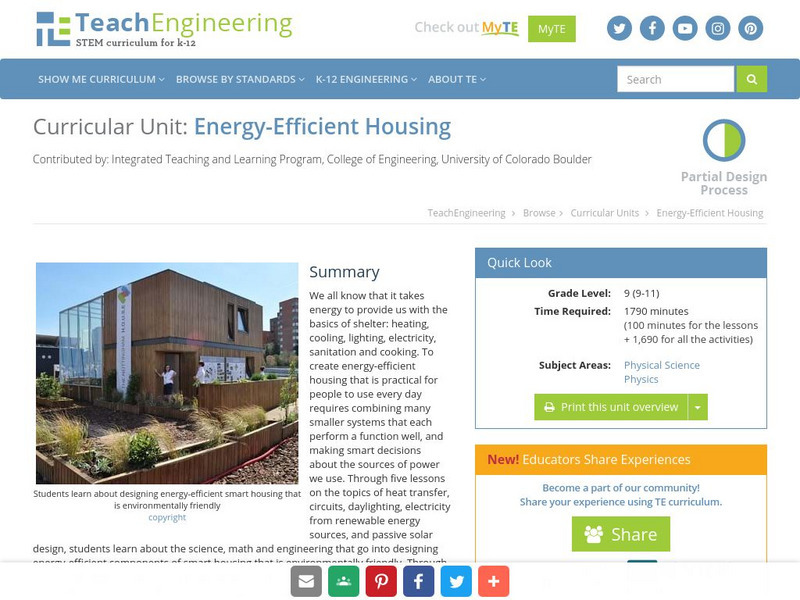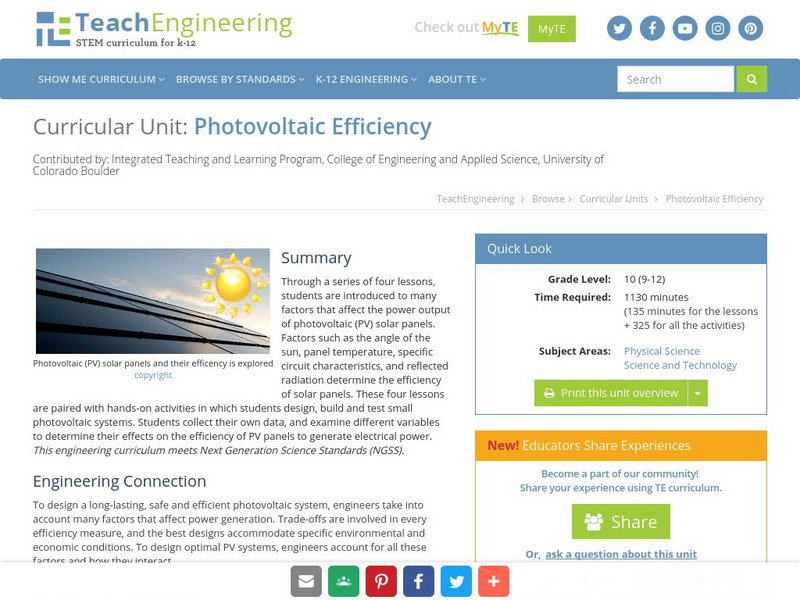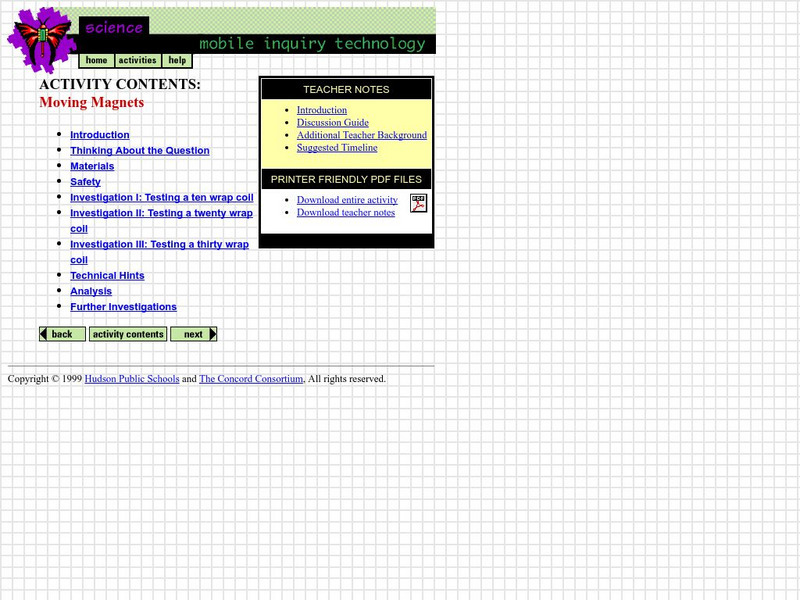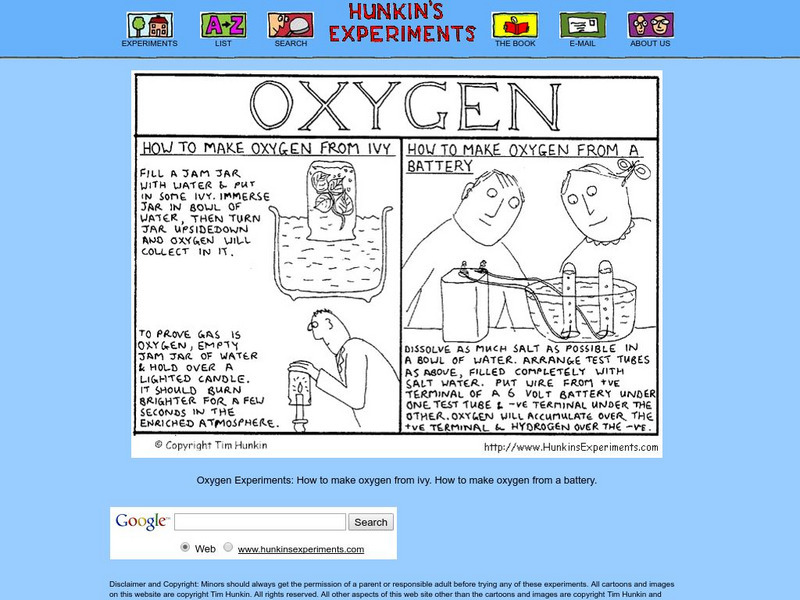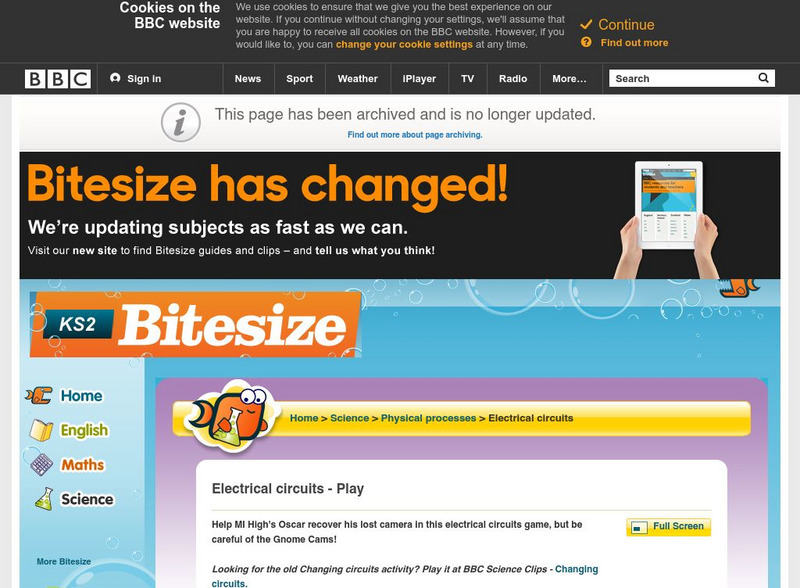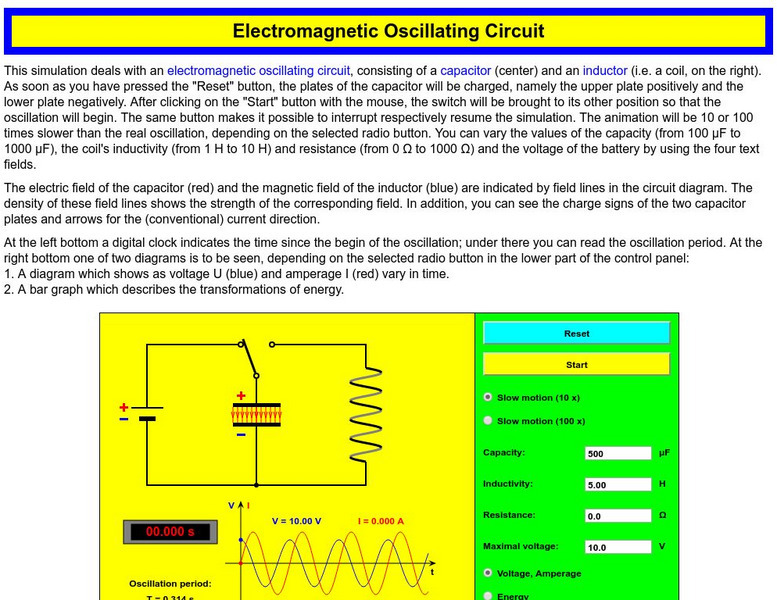Hi, what do you want to do?
TeachEngineering
Teach Engineering: The Power of Food
Students imagine they are stranded on an island and must create the brightest light possible with the meager supplies they have on hand in order to gain the attention of a rescue airplane.
TeachEngineering
Teach Engineering: Potato Power
Students use potatoes to light an LED clock (or light bulb) as they learn how a battery works in a simple circuit and how chemical energy changes to electrical energy. As they learn more about electrical energy, they better understand...
TeachEngineering
Teach Engineering: Pointing at Maximum Power for Pv
Student teams measure voltage and current in order to determine the power output of a photovoltaic (PV) panel. They vary the resistance in a simple circuit connected to the panel to demonstrate the effects on voltage, current, and power...
TeachEngineering
Teach Engineering: Energy Efficient Housing
We all know that it takes energy to provide us with the basics of shelter: heating, cooling, lighting, electricity, sanitation and cooking. To create energy-efficient housing that is practical for people to use every day requires...
TeachEngineering
Teach Engineering: Energy
Through nine lessons, students are introduced to a range of energy types--electrical, light, sound and thermal-as well as the renewable energy sources of wind, hydro (water) and solar power. Subjects range from understanding that the...
TeachEngineering
Teach Engineering: Photovoltaic Efficiency
Through a series of four lessons, students are introduced to many factors that affect the power output of photovoltaic (PV) solar panels. Factors such as the angle of the sun, temperature of the panels, specific circuit characteristics,...
Oak Ridge National Laboratory
Ornl: Teacher's Guide Superconductivity for High School Students
This site from the Human Genome Project provides a large collection of facts and information, demonstrations, experiments and project ideas. Written for teachers but easily adaptable for any type of student work. A good site to check out...
Science Education Resource Center at Carleton College
Serc: Modeling Emf, Potential Difference, and Internal Resistance
Interactive lecture discusses internal resistance which provides help to students in developing an accurate model.
Curated OER
Electricity: Simple Circuits
Create your own simple electric circuit. Using simple supplies build your own battery and investigate conductivity. You can also construct a crossword puzzle with electrical vocabulary words.
Khan Academy
Khan Academy: Application of the Fundamental Laws
We solve a circuit by direct application of the fundamental laws: Apply element laws (Ohm's Law and the like) plus Kirchhoff's Laws to solve for the currents and voltages of a circuit.
Physics Classroom
The Physics Classroom: Power: Putting Charges to Work
In this tutorial the concept of how electrical energy is transformed is introduced. Learn how electric charges actually work and take the interactive quiz to assess your understanding.
Physics Classroom
The Physics Classroom: Power Revisited
This tutorial visits the concept of power. You will learn to develop new equations that express power in terms of current, electric potential difference and resistance.
TeachEngineering
Teach Engineering: Hands on Activity: Designing a Thermostat
By building a basic thermostat, students will explore basic circuitry and electricity. The thermostat built out of a breadboard, temperature sensor chip, amplifier, and battery creates a linear relationship between temperature of the...
Concord Consortium
Mobile Inquiry Technology: Moving Magnets
This investigation has students examining how electric and magnetic charges are related. They will look at how an electric current is affected by the proximity of a magnet.
Cosmo Learning
Cosmo Learning: Introduction to Microelectronics
A collection of video lectures from an introduction to microelectronics taught at the University of California, Berkeley. The course teaches digital integrated circuits by covering circuit analysis and microelectronic devices and...
South Carolina Educational Television
Know It All: Nasa Online: Circuits
Learn the basics of electrical circuits and diagrams.
Science4Fun
Science4 Fun: Electronic Circuit
What is an electronic circuit? Resource provides a discussion of series, parallel, and series-parallel circuits plus more.
ClassFlow
Class Flow: Turning on the Lights
[Free Registration/Login Required] In this lesson students learn the parts of a circuit, build series and parallel circuits, learn about insulators and conductors, and more in this interactive multimedia flipchart.
Hunkins Experiments
Hunkin's Experiments: How to Make Oxygen From a Battery
Hunkin's Experiments is a group of simple cartoon illustrations of scientific principles. Some would work well in the classroom, but others have little value beyond entertaining students. All of the projects are easy to do. This one...
BBC
Bb Ci Schools: Revisewise Science Electricity
This lesson provides an interactive activity on electrical circuits along with a information sheet and a practice test.
Walter Fendt
Walter Fendt: Simple Ac Circuits
This simulation shows a simple circuit consisting of an AC voltage source and, depending on the button selected, a resistor, a capacitor or a coil.
Walter Fendt
Walter Fendt: Electromagnetic Oscillating Circuit
This simulation is about an oscillatory electromagnetic circuit formed by a capacitor and an inductor.
Science Buddies
Science Buddies: Sliding Light: How to Make a Dimmer Switch With a Pencil
In this electronics science fair project, students will make a simple dimmer switch and investigate the relationship between the resistance in the circuit and the amount of light produced. The Science Buddies project ideas are set up...
CK-12 Foundation
Ck 12: Physics Simulation: Marquee Lights
[Free Registration/Login Required] Learn about different ways you can wire an electric circuit, and how the brightness of the lights depends on how they are configured using this interactive simulation. A PDF worksheet and a video...








